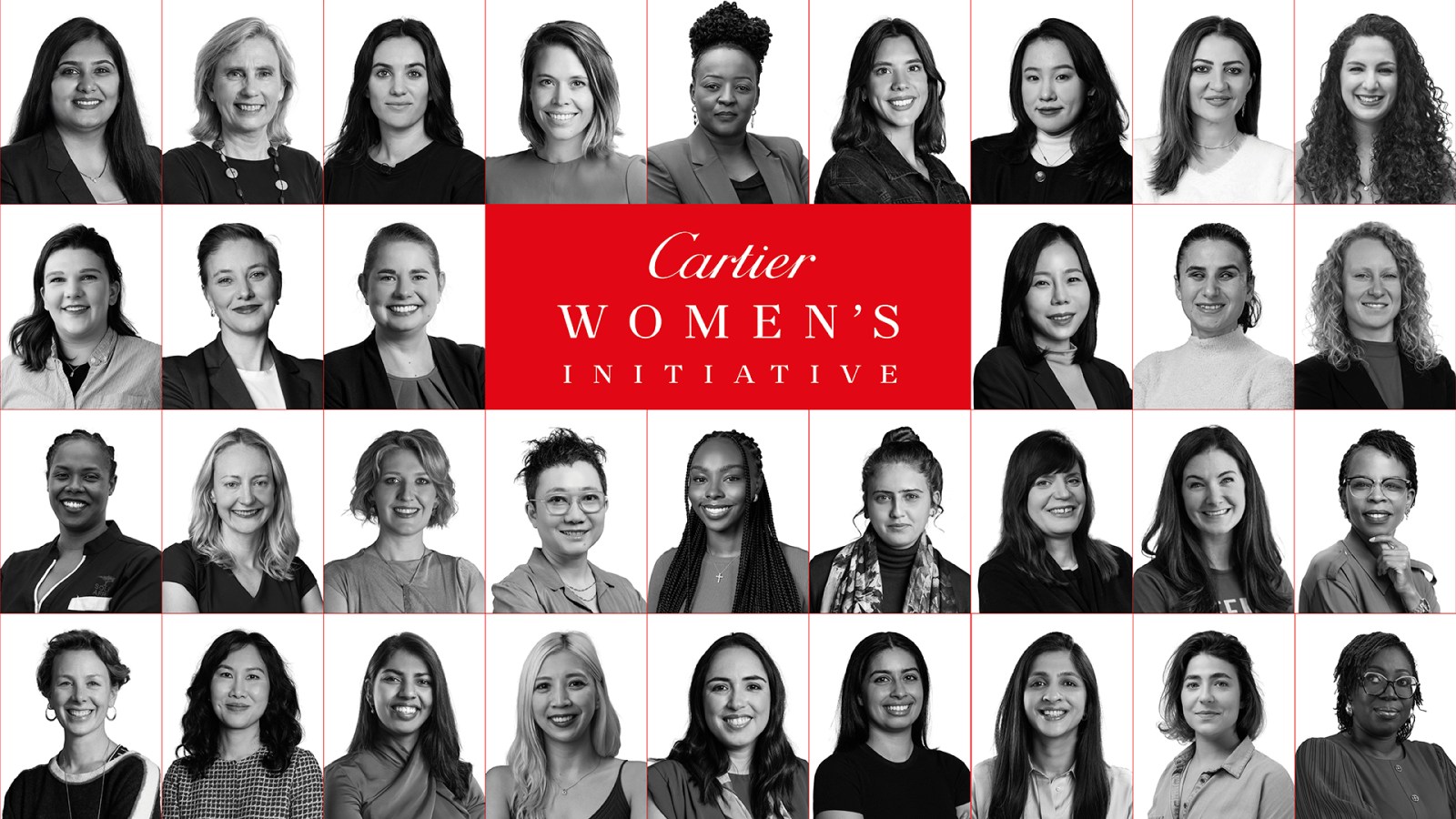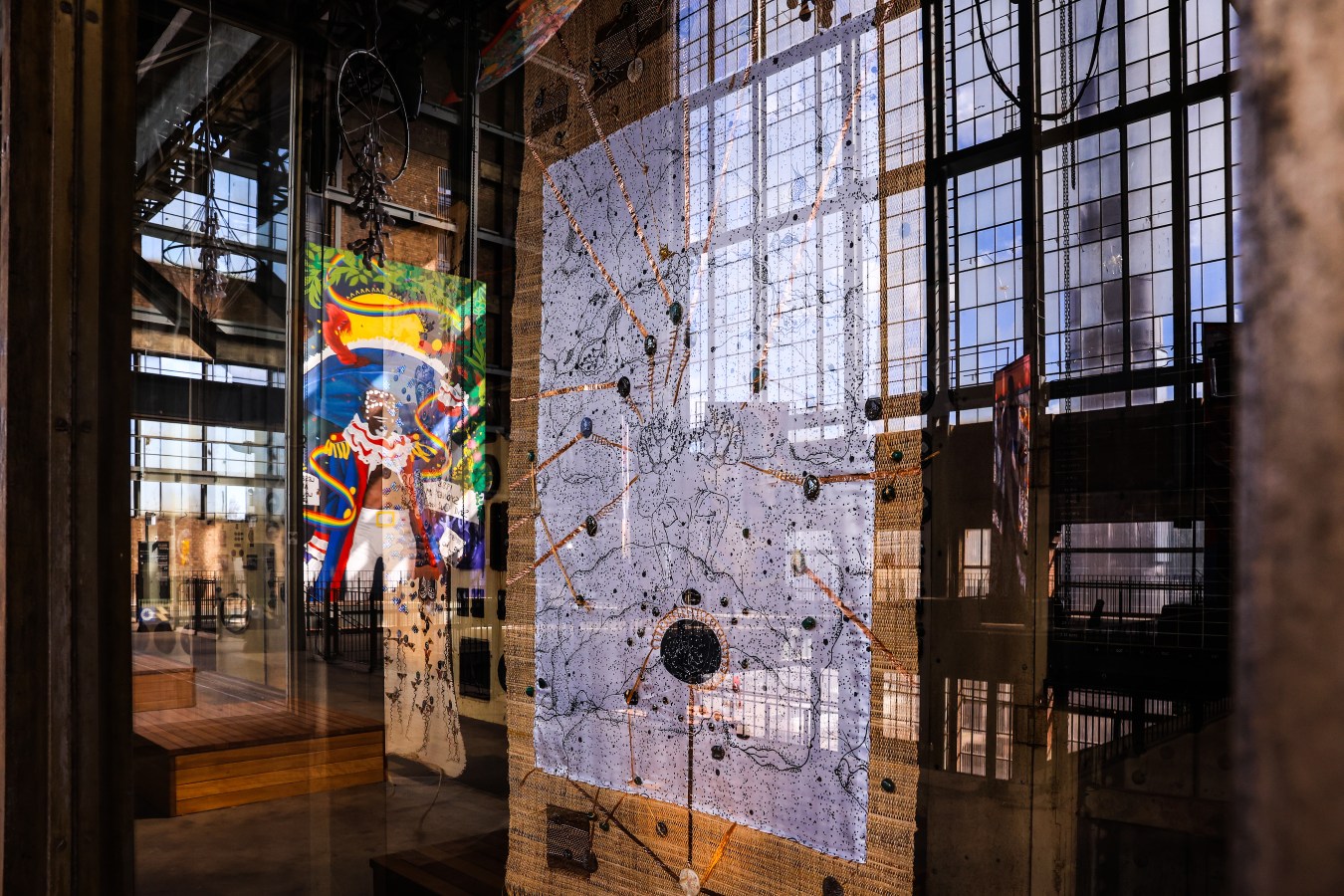Thirty-three women were up for a US$2 million grant at the annual Cartier Women’s Initiative (CWI) Awards. Frances Bilbao and Alison Harrington, represented Australia with their commitment to positive change in the medical field.
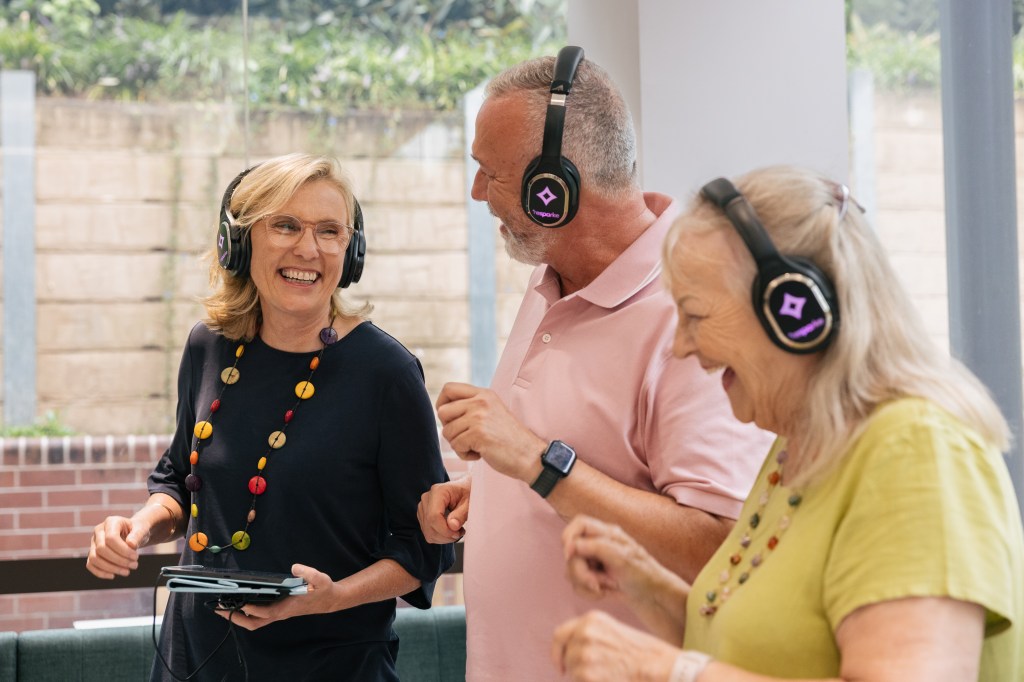
This article featured in Issue 11 of Forbes Australia. Tap here to secure your copy.
FRANCES BILBAO and ALISON HARRINGTON are two Australian entrepreneurs on a mission to solve problems costing the local economy hundreds of millions of dollars: perinatal mental health and dementia.
Cartier recognised them, and 31 other women impact entrepreneurs, or entrepreneurs using their business to make positive social and environmental change, at the 18th annual Cartier Women’s Initiative (CWI) Awards in Shenzhen, China.
This year, the fellows were up for 11 awards, comprising nine regional and two thematic awards. Winners were given US$2 million in grant funding: US$100,000 to first-place awardees, US$60,000 to second-place awardees and US$30,000 to those who nabbed third place.
But it isn’t just the funding that excited Bilbao and Harrison – as fellows, it was the opportunity to join a community of more than 330 women previously recognised by the CWI.
“The prize – finances – would help us solidify and consolidate our operational side of the business, to make it more scalable, but also the opportunity to gain advice for others who operate social impact businesses, it’s invaluable,” Bilbao says.
For Cartier China chief executive Cecile Naour, the awards are a reminder of corporates’ responsibility to support and empower women – and provide them with resources to succeed.
“As a woman, this is a reminder that I can help other women grow. It’s part of my job to do so,” she says. “CWI – yes, it’s an annual global ceremony, but it’s more than that. It’s an everyday responsibility. You have to have your skin in it – you have to act. The community is an inspiration, and there are 300 women in this amazing network that I may not be in touch with every day, but I know they are in touch with each other.”
Naour joined Cartier China about 18 months ago, after a 3-year-stint as CEO of Cartier South East Asia and Oceania. She says the company, now in its 30th year of operations in China, wants to extend the presence of its CWI throughout the region.
“We want to give more visibility to the program here,” she says. “Social media in China can really help to rapidly raise awareness about CWI to Chinese entrepreneurs, who don’t necessarily know the program today.”
Wingee Sin, the global program director of the CWI, says the theme of this year’s awards ceremony is Forces for Good, and the program aims to recognise the role of business in meeting climate and social targets.
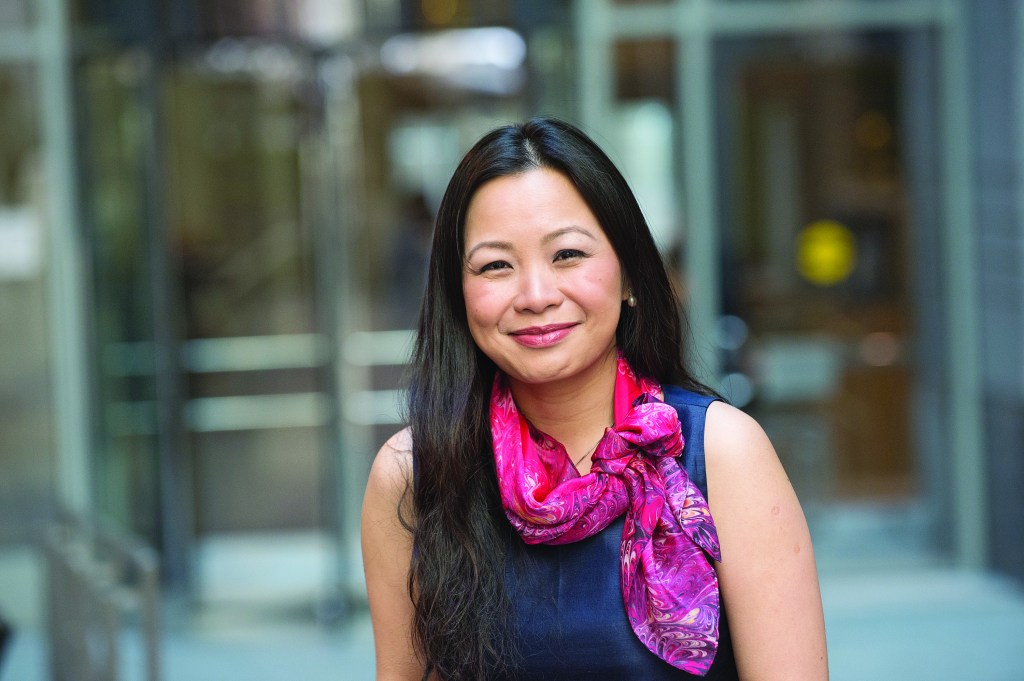
“The world needs all of us right now,” Sin says. “We know businesses also play an role in solving ESG goals. Impact entrepreneurship is an area where Cartier feels we have the change to support role models, who are women, leading positive change in their communities.”
For the first time, the CWI has recognised women impact entrepreneurs from Peru, Morocco and Vietnam, reaffirming its commitment to being a global program. Naour says she is also particularly excited about China’s entrants Emily Yu, founder of Ginger Ah, a lingerie designer for breast cancer patients, and Xintong Du, the founder of VoiceChanger, who offers in-person and online therapy and rehabilitation to speech-impaired children.
Of the more than 1000 applicants, Harrington, founder of Resparke, and Bilbao, founder of Mums Matter Psychology, made the cut.
Resparke
Serial entrepreneur and lawyer by trade, Alison Harrington is on to her third technology business, but her first that’s close to home. When her father-in-law, who had dementia, was living in an aged care facility, Harrington would often visit. She’d often find him anxious and agitated, but after playing music to him, she would leave him calm.
“But then I had to go home, and I always thought, ‘How amazing would it be if I could leave this with staff, and they could play it all the time?”
At the time, Harrington was studying social impact and was passionate about using her technology skills to make a difference. She wrote up a business plan for a trial of a program called Moove & Groove and received a government grant. After a 10-person trial in an aged care facility, things progressed quickly.
The community is an inspiration, and there are 300 women in this amazing network that I may not be in touch with every day, but I know they are in touch with each other.
Cecile Naour, chief executive, Cartier China
“Not only did it make people happy and joyful, and increase well-being, it also had the potential to have a hugely therapeutic impact on dementia,” she says.
There are 55 million people living with dementia worldwide, with 411,000 of those in Australia. Resparke estimates that figure will almost double in just six years to 78 million. The cost of dementia care is estimated to hit US$2.8 trillion by 2030 – and that’s not including unpaid carer costs, which are estimated to be in the billions.
Moove & Groove later rebranded to Resparke, but the tech has remained relatively simple – it offers specifically curated music playlists, videos, and podcasts to aged care residents round-the-clock. Facilities are then equipped with pre-programmed tablets and specialised wireless headphone tech kits to provide residents with content.
Since its inception in late 2019, the company has trained 5000 aged care workers and supported about 25,000 residents in Australia and New Zealand. Regarding outcomes, Resparke says it’s observed a 70% reduction in dementia behaviour, a 79% improvement in mood, and 80% of staff reported improved job satisfaction. It’s also observed a 12% reduction in the use of psychotropics (like antidepressants or anti-anxiety medication).
“We’ve always known there are endless research studies about the impact on music for dementia, but nobody has been able to operationalise it at scale in a medicalised setting,” Harrington says. “So, we have been very tenacious in trying to do this, and we’ve had research partnerships the whole way.”
The company is focused on bedding down its operations across Australia and New Zealand. However, there are plenty of opportunies for its product program overseas – particularly in markets where music and dementia are more mainstream, like the UK. Resparke’s also just completed a trial for those living with dementia at home.
“The wave of the silver tsunami is going to be huge,” Harrington says. “Helping people live at home, and it’s another huge segment with potential.”
Mums Matter Psychology
Clinical psychologist Frances Bilbao has witnessed first-hand the devastating effects of perinatal mental health issues on women during her time at Sunshine Hospital – one of the largest maternity hospitals in Victoria.
It’s estimated around 20% of women will experience a perinatal mental health disorder, which encompasses depression and anxiety. And staggeringly, one in five maternal deaths can be attributed to suicide. Bilbao had the opportunity to work on a two-year, government-funded program to provide support to women with perinatal mental health disorders. But suddenly, funding was cut.
“I started questioning… ‘Where are these women going to go now?” she says. After giving birth to her first child in 2014, Bilbao found herself accessing maternal and child health services and was once again shocked by the lack of mental health support available to women.
“When I refocused on my career after having my baby, I decided to start Mums Matter Psychology to fill the gap I’d seen for women who weren’t unwell enough to access acute mental health services that offer aid in Australia but also weren’t in a position to afford private psychologists.”
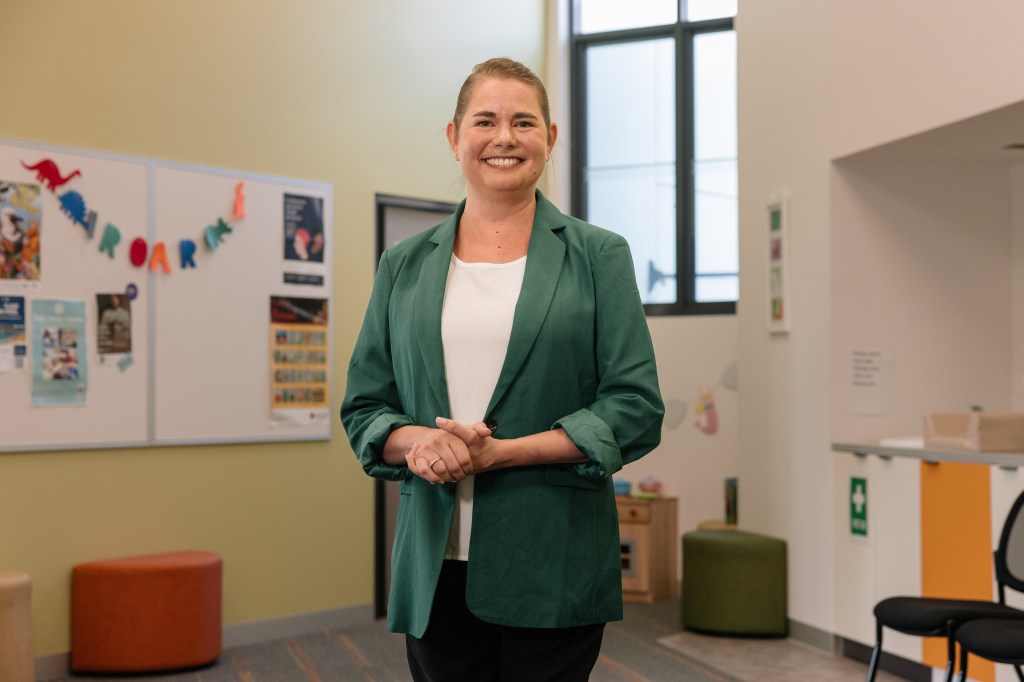
Mums Matter Psychology has provided free therapy to more than 5,600 clients across Australia since inception. It estimates it’s reduced the national cost of perinatal depression and anxiety valued at US$585 million annually – by about US$30.7 million.
A lot changed during that time, too. Bilbao says COVID-19, which brought telehealth consults under Medicare rebates, opened the door to more support for women, particularly those located regionally. “We can have clinicians working anywhere, she says. “We were constrained by local psychologists being able to provide local services face-to-face. Now, we have a team spread across Australia, and can service the whole community.”
The goal is to provide specialised, affordable, and accessible care to all women across Australia, which Bilbao says leads to better mental health for future generations.
“We have to be creative with our technology to create efficient administration processes so we can keep our overheads and our costs low and provide bulk billing to women.”
Are you – or is someone you know -creating the next Afterpay or Canva? Nominations are open for Forbes Australia’s first 30 under 30 list. Entries close midnight, July 15, 2024.
Look back on the week that was with hand-picked articles from Australia and around the world. Sign up to the Forbes Australia newsletter here or become a member here.

